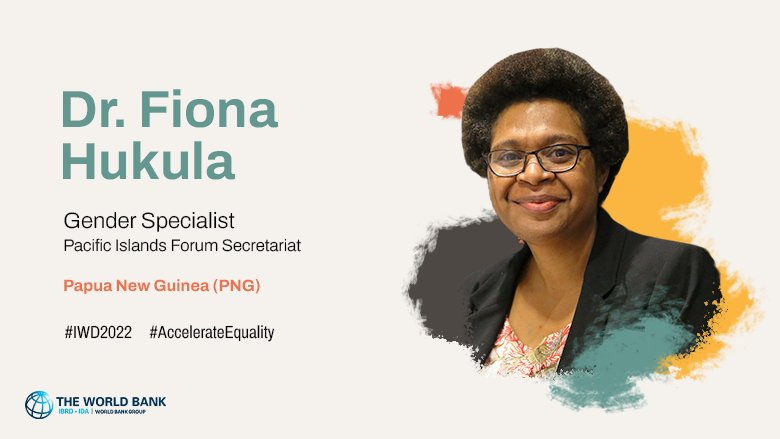In some ways, I stumbled across the gender space by accident. I've always had a very big interest in the criminal justice system, especially the informal justice system in Papua New Guinea (PNG). Prior to joining the Pacific Islands Forum Secretariat (PIFS), I was a researcher for the PNG National Research Institute and my focus was on gender-based violence. I’m interested in how women can access services in relation to gender-based violence. This passion eventually led to my current work. I firmly believe in women’s leadership across society.
I'm fun, outgoing and very approachable.
A key challenge is the friction between our formal legal system and our customary understanding of issues relating to gender. For example, PNG has been independent for nearly 50 years, however the criminal justice system doesn't reach enough people, especially women. That’s where the informal justice system works in tandem with the criminal justice system to deal with gender-based violence.
Gender inequality connects with climate change in many ways. There are not enough women at the table at the highest levels of discussions around climate change. When people must move due to climate change, migration impacts women as there's the possibility of violence, issues around food security, access to services and other areas that affect women.
At every level, whether it's grassroots activism, policy, or politics, we need the voices of women to be amplified to represent the concerns of women and how climate change affects our communities.
One way is to ensure that the research that's undertaken is translated via various forums. That could include blog pieces, op-eds or communication through platforms like radio. That makes it easier for the general public to be able to understand what the research is all about. It’s also important for policy makers to connect with, and access, that research.
One of the biggest has been the belief that gender equality is a foreign concept that is introduced and driven by outsiders. Yet, we do know that we have local understandings of equality and gender. For PNG, equal participation by women is in our constitution. It can be a struggle to engage with people in a way that allows them to understand the importance of having women at the table – whether it’s at a community meeting, local level government, public service, within the private sector or politics. I’ve learned that it’s important that Pacific women are front and center in these discussions to challenge misconceptions of gender equality being a foreign agenda. The reality is that Pacific women have been fighting for equality for a long time.
It’s important that there are more opportunities to mentor young women. I’ve met so many amazing young women through my role at PIFS. We have so many amazing women in PNG and in the Pacific. It’s important that we learn from the past and from the trailblazing Pacific women who have paved the way for us. But now we must ensure that we engage with young women who are the future leaders of the Pacific. We need to share and work together to achieve the greater goal of equality for women and girls.
My advice to Pacific women is to keep striving. Keep striving for all the things that you want in
your life, for your community, for your country and your region. We’ve had so many challenges. Not just gender equality but also climate change and disasters, and we have come through these challenges as a region. Keep the faith. Keep on keeping on. Reach out to mentors and people you can confide in. Mental health is an important thing. In this day and age, where we work and live under so much pressure, it’s important to keep the sisterhood going.
**The views expressed in this interview do not necessarily represent the views of the World Bank Group.

